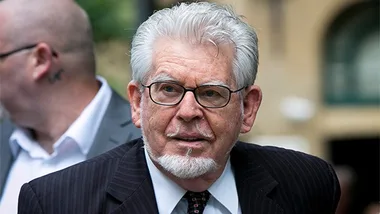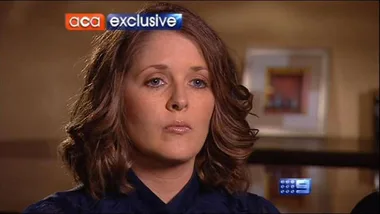“I was in a state of denial,” says Christina. “I wanted what he was telling me to be true. And I thought it was, for years after until my daughter came to me and told me that he’d been abusing her throughout her childhood. It was like a dagger through my heart.”
Christina is one of many thousands of women world-wide who have been partners of men who sexually abuse children. It’s a unique and agonised group.
In recent months, we have seen others in this group standing by the man in their life. Alwen Harris, wife of entertainer Rolf Harris, held his hand each day as he walked to court in London while here in Australia, celebrity agent Robyn Gardiner held hands with her husband Hey Dad! actor Robert Hughes during his trial for the abuse of young women.
These high profile cases have shone a light on a rarely examined aspect of child abuse – what happens to the wife or partner of such men and why do they sometimes choose to support their men in spite of mounting evidence against them?
Experts say that there are cases where women are completely unaware of their partner’s activities but many more are in denial, clinging to anything that keeps the truth shut away from the light.
Carol Ronken, criminologist and chief of research at child abuse advocacy group Bravehearts, says predators often groom their partners as well as their victims. “We often speak about the process offenders go through in grooming children and young people and their families,” says Carol, “but the reality is that we know they also go through a similar process whereby the offender has hidden their true self from their partner and family members.
“They have built their life around portraying themselves as separate to the sexual offender they are.”
Predators will try to protect that image at all costs, often sowing the seeds of doubt with their wives, partners or other family members long in advance of any discovery. “When disclosures emerge against them, offenders will more often than not do everything in their power to convince their partner or families that what is being said is not true,” says Carol. “They will plant seeds of doubt, of persecution and express bewilderment that anyone could claim this of them.”
This often leaves the wives or partners in a state of intense emotional confusion about what is happening and how they feel. Their relationship with their partner – the person they have chosen to share their life with – is shaken to its core. Indeed, the very foundations of their life may be threatened by the accusations against their partner. And this lays the ground work for a powerful psychological state known as denial.
“Partners of sexual offenders often suffer emotional conflict,” says Carol. “All of the feelings they have for their partner are undermined. For some, the desire to not believe that the person they love is capable of the crimes they have done is so strong that they will latch on to any tiny discrepancy or doubt and use that to bolster their belief in their partner. Some partners may not believe simply because to do so will mean that their whole life that they built with their partner was built on lies.”



